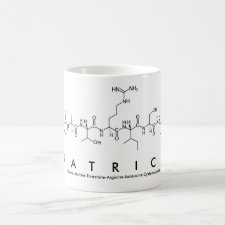
Authors: Vandenryt T, Van Grinsven B, Eersels K, Cornelis P, Kholwadia S, Cleij JT, Thoelen R, De Ceuninck W, Peeters M, Wagner P
Article Title: Single-Shot Detection of Neurotransmitters in Whole-Blood Samples by Means of the Heat-Transfer Method in Combination with Synthetic Receptors.
Publication date: 2017
Journal: Sensors
Volume: 17
Issue: (12)
Page numbers: ArticleNo2701.
DOI: 10.3390/s17122701
Alternative URL: http://www.mdpi.com/1424-8220/17/12/2701/htm
Abstract: Serotonin is an important neurotransmitter that plays a major role in the pathogenesis of a variety of conditions, including psychiatric disorders. The detection of serotonin typically relies on high-performance liquid chromatography (HPLC), an expensive technique that requires sophisticated equipment and trained personnel, and is not suitable for point-of-care applications. In this contribution, we introduce a novel sensor platform that can measure spiked neurotransmitter concentrations in whole blood samples in a fast and low-cost manner by combining synthetic receptors with a thermal readout technique-the heat-transfer method. In addition, the design of a miniaturized version of the sensing platform is presented that aims to bridge the gap between measurements in a laboratory setting and point-of-care measurements. This fully automated and integrated, user-friendly design features a capillary pumping unit that is compatible with point-of-care sampling techniques such as a blood lancet device (sample volume-between 50 μL and 300 μL). Sample pre-treatment is limited to the addition of an anti-coagulant. With this fully integrated setup, it is possible to successfully discriminate serotonin from a competitor neurotransmitter (histamine) in whole blood samples. This is the first demonstration of a point-of-care ready device based on synthetic receptors for the screening of neurotransmitters in complex matrices, illustrating the sensor's potential application in clinical research and diagnosis of e.g., early stage depression
Template and target information: serotonin
Author keywords: heat-transfer method, biomimetic sensing, Molecularly imprinted polymers, Neurotransmitters, Point-of-care diagnostics



Join the Society for Molecular Imprinting

New items RSS feed
Sign-up for e-mail updates:
Choose between receiving an occasional newsletter or more frequent e-mail alerts.
Click here to go to the sign-up page.
Is your name elemental or peptidic? Enter your name and find out by clicking either of the buttons below!
Other products you may like:
 MIPdatabase
MIPdatabase









